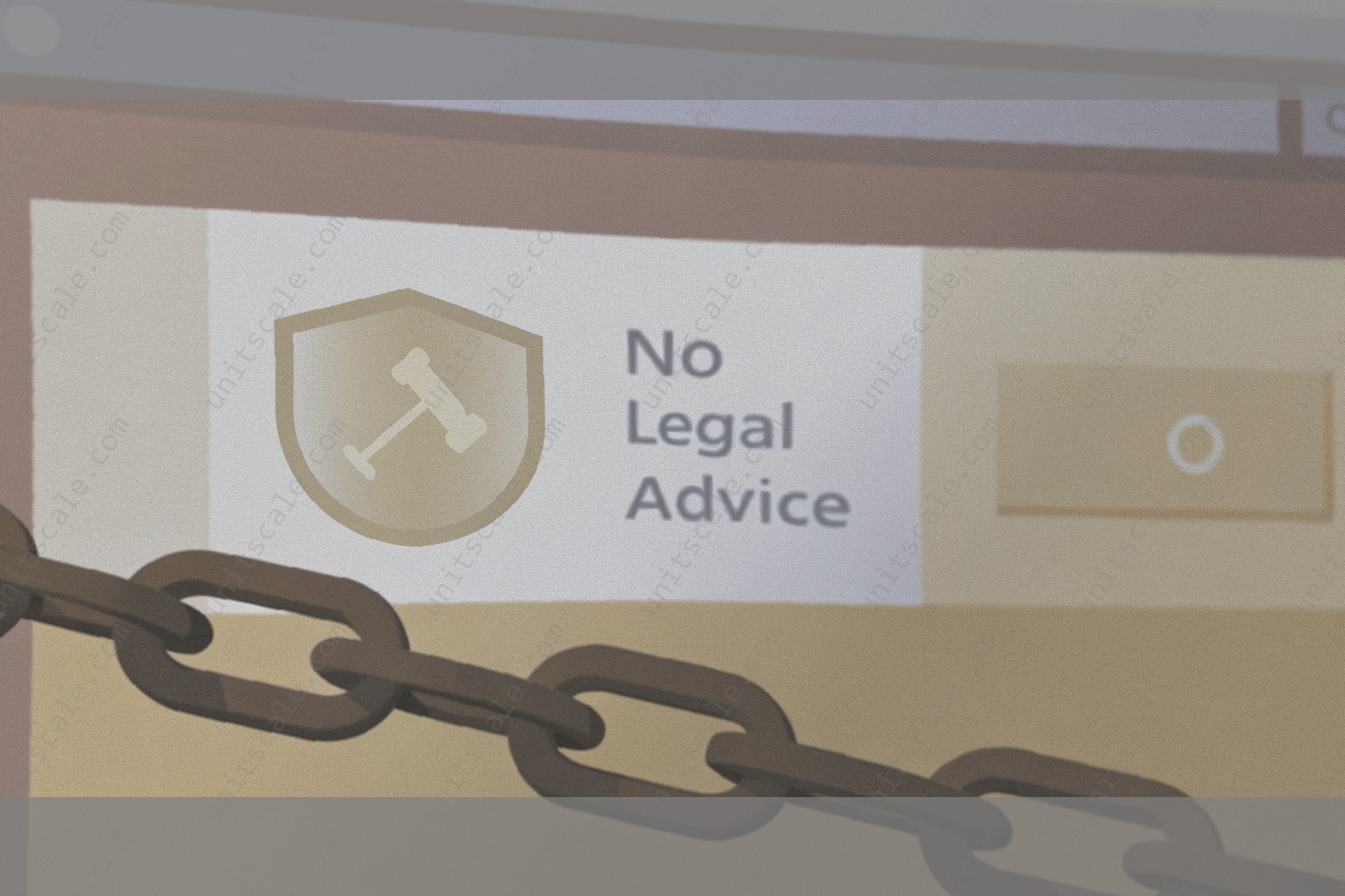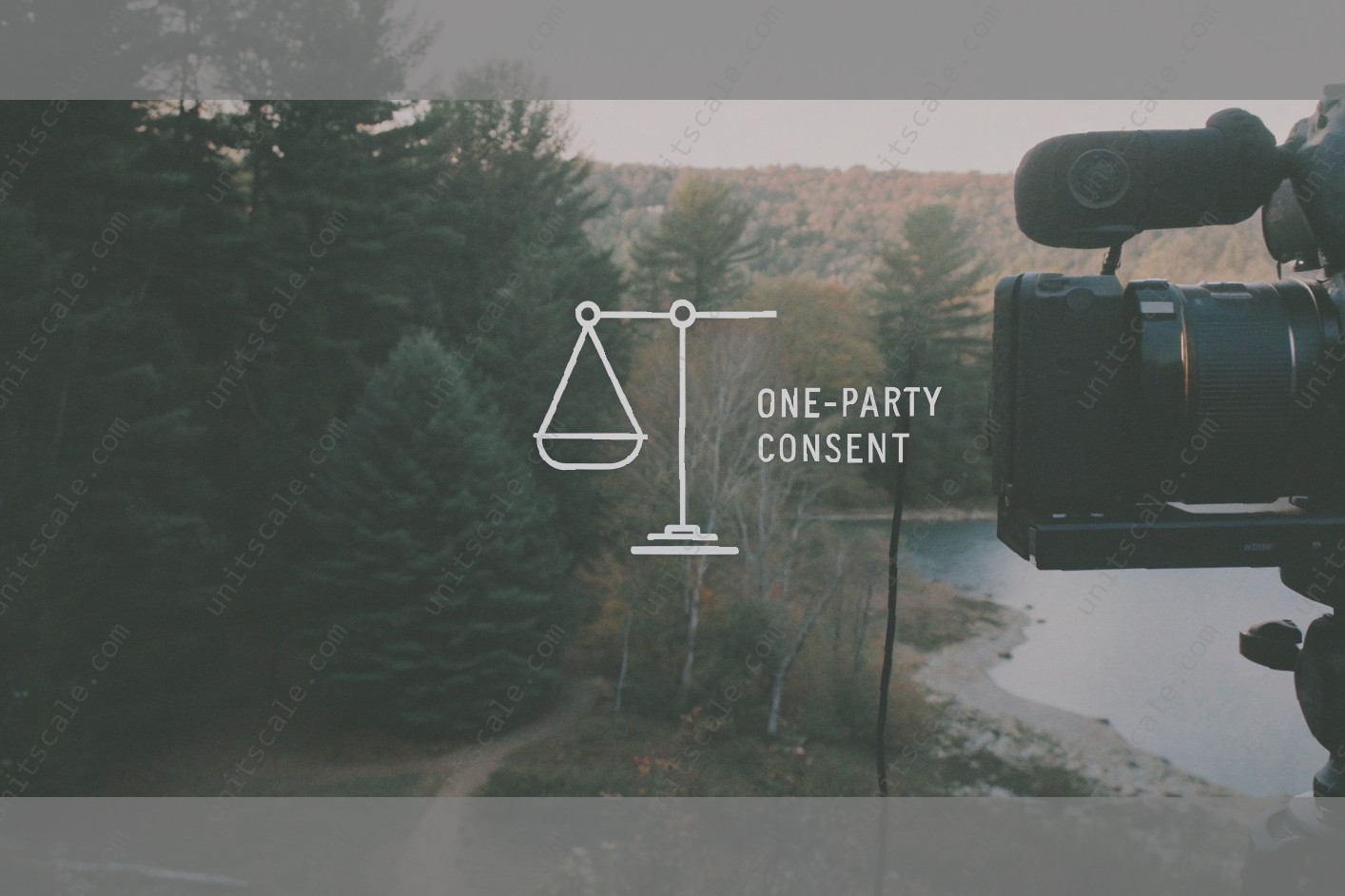No Legal Advice Disclaimer: What Is It?
A legal disclaimer advising website visitors that the content on their site should not be construed as legal advice is called a no legal advice disclaimer. There are several reasons why this type of disclaimer is used on a website. First, it protects the owner of the site by telling visitors that they have no attorney-client relationship with the owner. It also informs the owner that if a visitor uses any of the information that is provided on the site and then suffers harm because of that information, the visitor will not be able to hold the owner responsible for his or her damages because he or she was not denied any legal advice.
The disclaimer is sometimes used on websites operated by non-lawyers as well, such as legal services providers or online document preparation services that "help" people with their legal issues .
A no legal advice disclaimer is an important part of your website’s terms of use. This does not mean, however, that you must have one on your law firm’s website. An attorney-client relationship should only exist where the two (2) necessary elements are present: 1) The manifest of the mutual parties’ intent to be bound by the relationship; and 2) sufficient consideration.
Simply using a no legal advice disclaimer on your website’s terms of use does not prevent an unintended attorney-client relationship from forming. For more information about whether a no legal advice disclaimer is necessary for your website, please consult with a qualified attorney.
No Legal Advice Disclaimers Matter
Businesses can face liability for giving actual legal advice without an appropriate attorney-client relationship in place. For example, if a state requires certain types of relationships to be overseen by licensees, offering advice as though one is licensed may serve as the starting point for a licensure complaint. Further, if any harm comes from the use of the advice that an un-licensed person gives, then that could result in liability as well. Satisfying the requirement that a business or agent for a business has no attorney-client relationship with the client is not enough to fulfill the intention behind No Legal Advice Disclaimers. Without a specific disclaimer to the client, the lack of relationship could be overlooked. Further, the inadvertent relationship may be interpreted to create a waiver of the lack of relationship. In most cases, the person or entity would not actually be providing legal advice, but rather legal information on the use such information. Legal information, as opposed to legal advice, can be provided freely and easily. A disclaimer serves to protect the provider of the information by ensuring there is no intent to give the viewer of the page, website, or blog legal advice. It also warns the viewer that the information is not to be taken as such and that they should seek legal counsel to help determine the nature of their needed information.
Examples of Where “No Legal Advice” Disclaimers are Common
There are a number of situations in the legal industries where "no legal advice" disclaimers are important. One of the most obvious of these is on a law firm website, where if a visitor to the site expects to get legal advice from perusing the pages, having such a disclaimer is a good idea.
However, there are other occasions when "no legal advice" disclaimers have proven useful. This is especially true for blogs, which now have their own separate small trunk in the law library of the internet, and even for sites that charge for legal advice. In these cases, it is important for users to understand that while the site provides guidance, it does not provide actual legal advice. It is important to set the record straight so that customers know whether or not to plunk down money for something that may not be what they need.
Even websites that help you to get a quote on online legal services may need to inform visitors that just because they are connected with a lawyer on the site does not mean that the user is a client or in an attorney-client relationship of any kind.
Even if a user is charged a fee for online services, there still is a chance that he or she may be expecting that the service they are receiving will not only be informative, giving him or her the information they need, but also financially protective as well.
There are a number of different situations that might call for "no legal advice" disclaimers on a site. Some of these include, but certainly are not limited to:
As you can see, these are some of the most common online presences where "no legal advice" disclaimers are useful.
Legal Fundamentals: Expected Contents In a No Legal Advice Disclaimer
In each case where they appear, no legal advice disclaimers typically include a general statement to the effect that the information included on a law firm’s website or elsewhere is for the purpose of providing information about legal issues, and also includes a statement that the information is not intended as actual legal advice upon which the reader should rely.
Most no legal advice disclaimers also explain, in bold print, that an attorney-client relationship can only be formed through a written agreement signed by both the prospective client and the attorney, that no person should send any confidential information to any firm over the Internet without asking specific permission, and that no information which is sent to the attorney will be considered confidential until and unless an express attorney-client relationship has been created other than through the website itself . Firm websites with an email address are required under the rules of most and possibly all states to include a no legal advice disclaimer informing the reader that it "is not intended to provide specific legal advice regarding your legal problem."
In addition to these three components, no legal advice disclaimers regularly include a limitation on liability. For example, a common limitation is that the law firm is not responsible for any errors or omissions in the content of its website, or in its email communications when prospective clients represent their situations to the firm and request specific information or advice about a legal issue or matter.
How No Legal Advice Disclaimers Can Shield Your Company
Your communications may give the impression you are creating some sort of attorney-client relationship which can impose upon you unforeseen legal obligations. We often see this scenario. A website states: "Please remember that no attorney-client relationship is created between you and us by using this website, sending us an e-mail, or otherwise". The "otherwise" language could be interpreted to include "asking questions" via a "contact us" form on the website, so it is not specifically stating that the "no attorney-client relationship" language does not apply to that particular form of communication. Leaving this possibility open does not subject the sender to attorney-client privilege and could create problems if the submitting party is expecting confidentiality. When employing the no attorney-client relationship language, it is important you mean it and even more important the audience knows you mean it. Otherwise one could unwittingly assume an attorney-client relationship exists with you and perhaps question whether a subsequent attorney-client relationship was too late to impose upon the prior relationship. The American Bar Association explains that a key criterion in determining whether or not an attorney-client relationship was formed is the client’s reasonable belief that the attorney was offering to provide legal services. The ABA’s guide to determining whether an attorney-client relationship has been created notes "The client’s belief, however, must be reasonable." How does the sending party’s knowledge that a no attorney-client relationship is created prior to submission of the question protect your business? Not only are you protecting the sending party from mis-information about the applicability of the attorney-client privilege, but you are protecting your ability to have prior communications with the sender deemed legal advice. If you do not take the necessary steps to put the questioner on notice that you do not intend to create an attorney-client relationship, and then afterwards represent the client on the issue upon which you questioned the sender about (without providing the sender with any counsel), there is the chance that under a "Qui Tam" analysis the prior communications with the sender, after there is attorney-client relationship created – may be deemed legal advice and then you are faced with a situation where you have to say, based on our prior communications with you we should not have provided you with legal advice, instead, you should go find someone who does not have a conflict. You are now in the interesting position of having already provided the client with legal advice on the same issues which you did not mean to do – but upon which you already had confidential information because of your communications with the sender of the question you thought would not create an attorney client relationship. Now you cannot represent the sender on that issue and have to unravel the prior communications. No "ethics" violation exists for you to unravel prior communications protected by the attorney-client privilege, but if the information shared reflects poorly on your ability to represent the client on those issues you may have some explaining to do since the client believes you already advised them on the same. The smart move is to include a prominent notice on communications with the public that you do not intend to offer legal advice to the reader of the communication unless and until a formal engagement and written fee agreement are prepared and signed by you.
Creating a No Legal Advice Disclaimer: Tips and Tricks
The language you choose is of paramount importance. Use clear, concise, and unambiguous language to state your position. Consider including the following elements in your no legal advice disclaimer:
• A statement that no attorney-client relationship is formed through the use of your site or blog
• A reminder that your posts or content do not constitute legal advice
• A suggestion that readers seek advice from a licensed attorney for their specific needs
• A notice that your information might not be current or applicable to their location
• A statement that your information is intended only as general information
• An invitation to readers to contact you via a contact form or email if they need your services
While there’s no one-size-fits-all approach, be sure to avoid words that could be construed as establishing an attorney-client relationship . Be especially cautious about language that might imply that readers have engaged in a consultation with you or have received personalized advice. Consider initial networking opportunities, either in person or online, to create relationships before you use your digital marketing channels to solicit business from potential clients.
Remember that circumstances could arise where a "no legal advice" disclaimer is found to be ineffective. The standard might not be applied uniformly across all states, so, as a matter of best practice, consult with a bar association or a qualified legal professional in your state.




